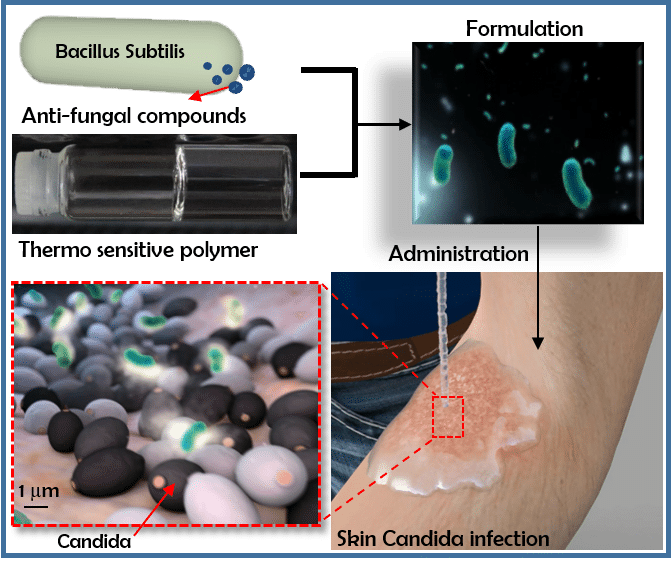
Treating Local Fungal Infection with Probiotic Responsive Formulation
Fungal infections are a significant and growing public health concern infecting billions of people every year. Most people will suffer from fungal infections in their lifetimes. Candida is the second most common fungal infection over the world. The infection can appear on: skin, nail, mucosal tissues (oral and genital) and as systemic disease. We are focusing on skin fungal infection. The current main pharmacological anti-fungal treatment for local infection is Azoles, group of antifungal agents. This group has added greatly to the therapeutic options for treatment but it has some drawbacks: applied daily for over a year, six month to notice an improvement, low compliance, and an increase in candida strains resistant. These shortcomings of current treatments necessitates a search for new therapeutic strategies for local fungal infection. Here we developed innovative system- a live organism formulation that function as a small “factory” that continuously produces anti-fungal agents and deliver it in-situ. This was facilely achieved by incorporating: (1) Pluronic F-127- thermo responsive polymer (LCST at 32-35°C). (2) Bacillus Subtillis- Gram-positive bacteria, naturally found on human skin and Generally Regarded As Safe (GRAS).
The bacteria can produce and secrete a variety of potent antifungal agents into the polymer medium. The resulting formulation should be easy to administer (e.g., liquid at room temperature or under refrigerating) but quickly solidifies on the skin after administration.

Powered by Eventact EMS